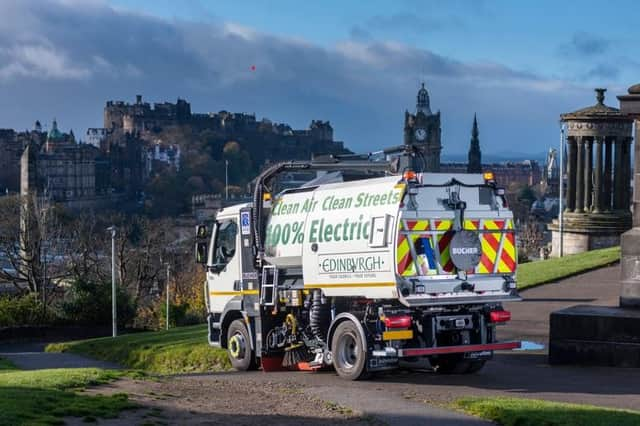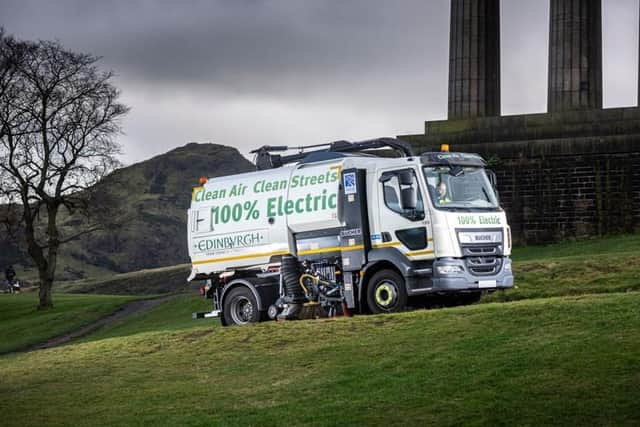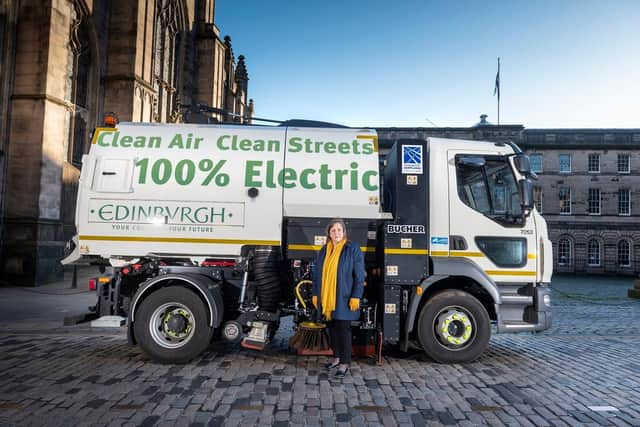UK’s first all electric vehicle joins Edinburgh’s fleet of street sweepers


Purchasing this new technology is part of the council’s drive towards net-zero carbon emissions in Edinburgh by 2030 and its wider sustainability plan which includes improving air quality and reducing emissions across the city by introducing low emissions zones, removing diesel vehicles from the council fleet and rapidly replacing smaller vehicles with electric ones.
The council aim to deliver a 100 per cent electric car fleet in 2020 and 100 per cent electric van fleet by 2023.
Advertisement
Hide AdAdvertisement
Hide AdThe 15-tonne electric vehicle’s 200kwh battery will complete an eight-hour sweeping shift and can be fully recharged within five hours in the meantime producing only 39kg of CO2 per day.


This will already make a 110kg saving on diesel sweepers’ emissions of 150kg of CO2 per day and will reduce as the electrical supply in Scotland moves further towards being carbon neutral.
Saving £18,000 a year in fuel compared to its diesel counterparts, it has an estimated cost of only £2,000 to charge each year.
Supplied and manufactured by Bucher Municipal, the sweeper was purchased through grant funding from the Scottish Government’s Switched on Fleets initiative.
More electric sweepers, along with electric welfare buses, trucks and other vehicles, will be introduced over the next five years if the vehicle is a successful addition to the fleet.


Councillor Lesley Macinnes, Transport and Environment Convener said: “This new electric sweeper represents another step in our removal of diesel vehicles from the council fleet and we’re glad to be an early adopter of the technology.
"Our 2050 Edinburgh City Vision is of a green, thriving and carbon neutral city and it is actions like this, along with our commitment to deliver an electrified transport fleet, that will help us achieve that vision.”
Craig Mitchell, regional sales manager for Bucher Municipal, said: “We’re pleased to be delivering Europe’s first zero emissions, full electric powered truck mounted road sweeper. Bucher Municipal has a long-standing relationship with the Council, and together we’ve been working closely with Transport Scotland, who were able to ensure that the iconic streets of Edinburgh will be swept with the most environmentally friendly sweeper on the market.”
A message from the Editor:


Thank you for reading this article. We're more reliant on your support than ever as the shift in consumer habits brought about by coronavirus impacts our advertisers.
If you haven't already, please consider supporting our trusted, fact-checked journalism by taking out a digital subscription.
Comments
Want to join the conversation? Please or to comment on this article.